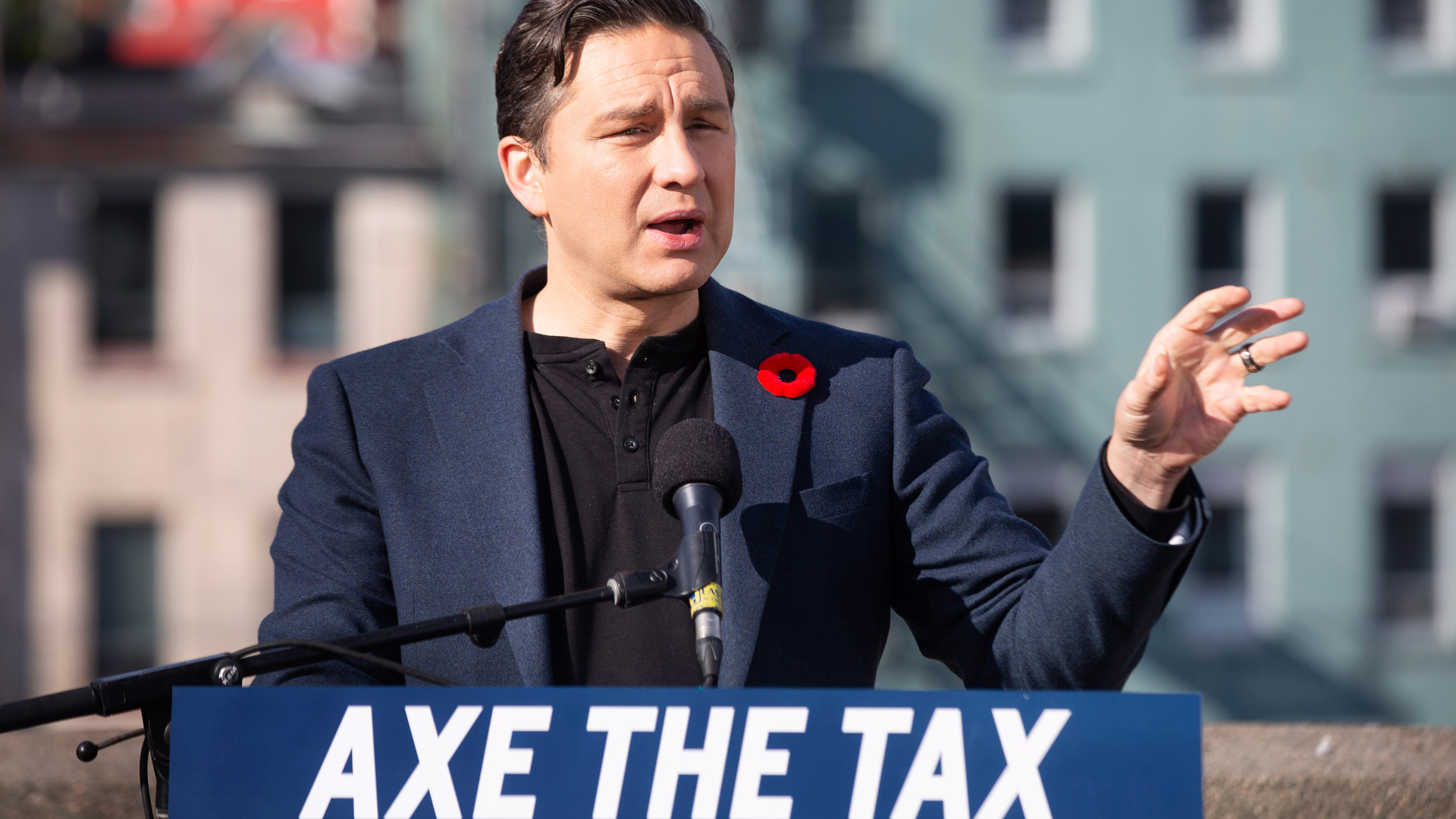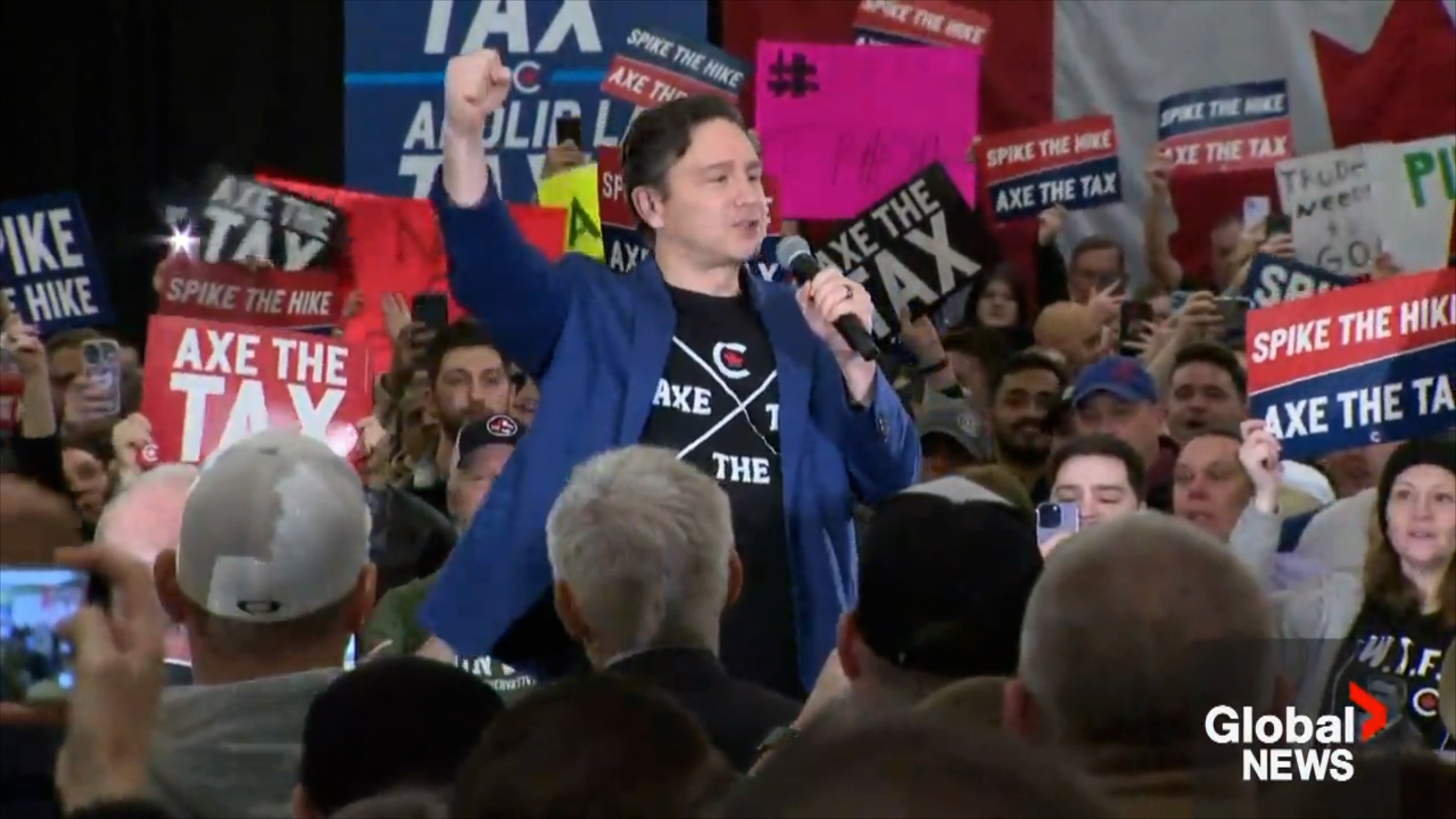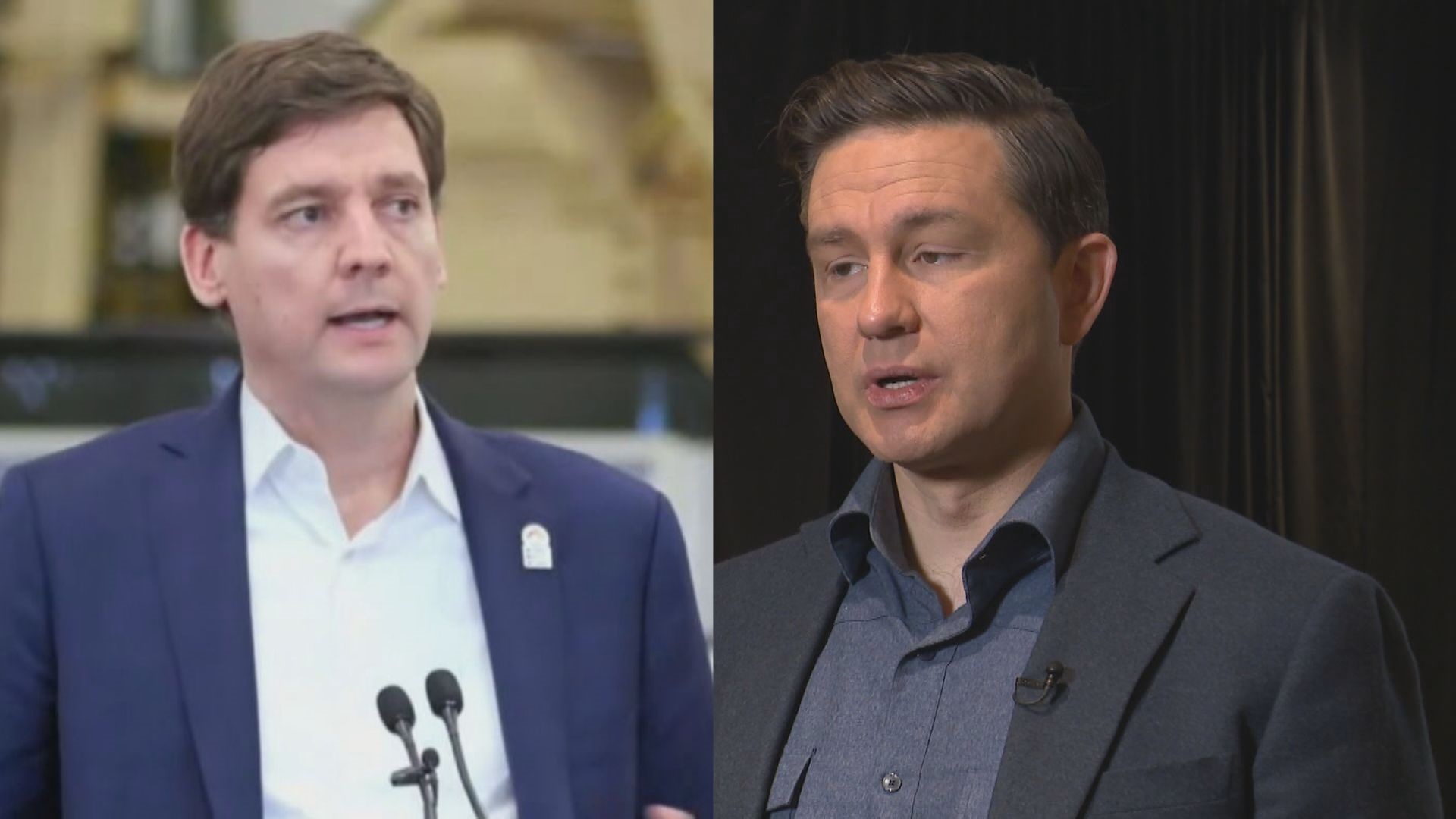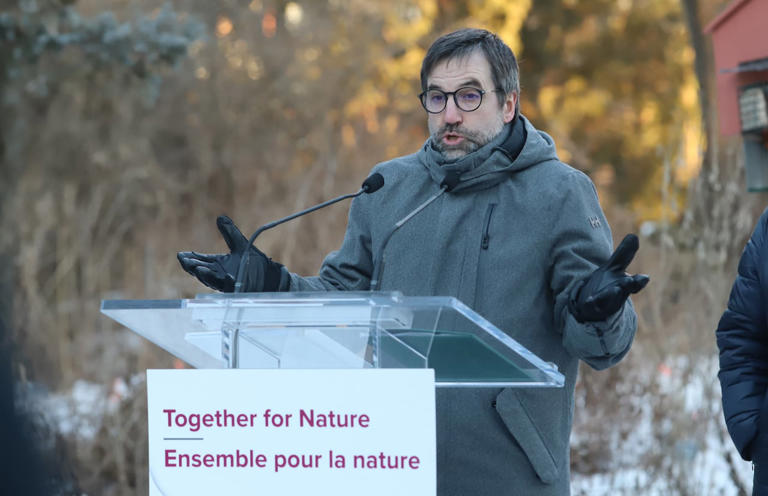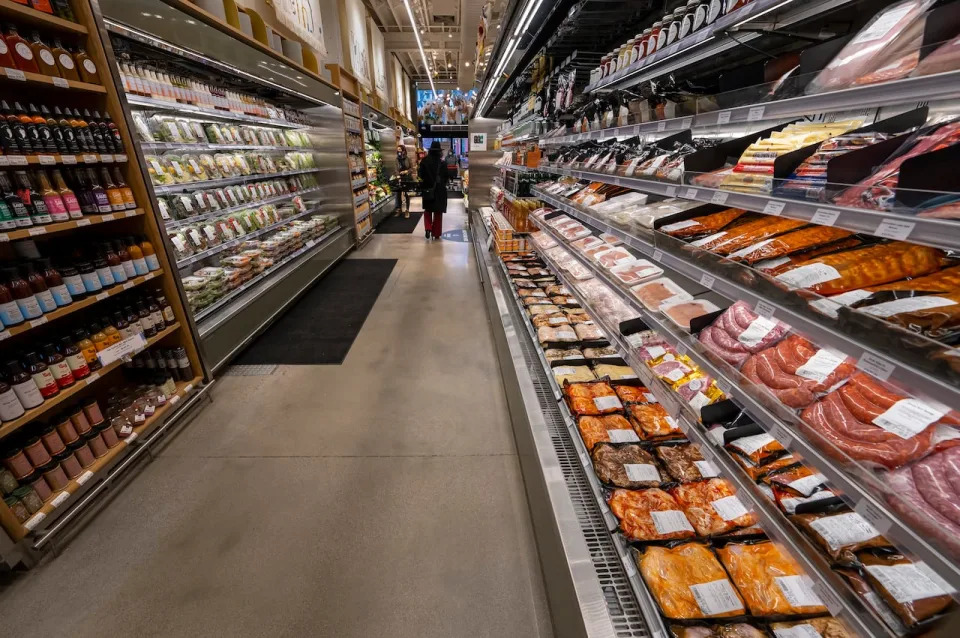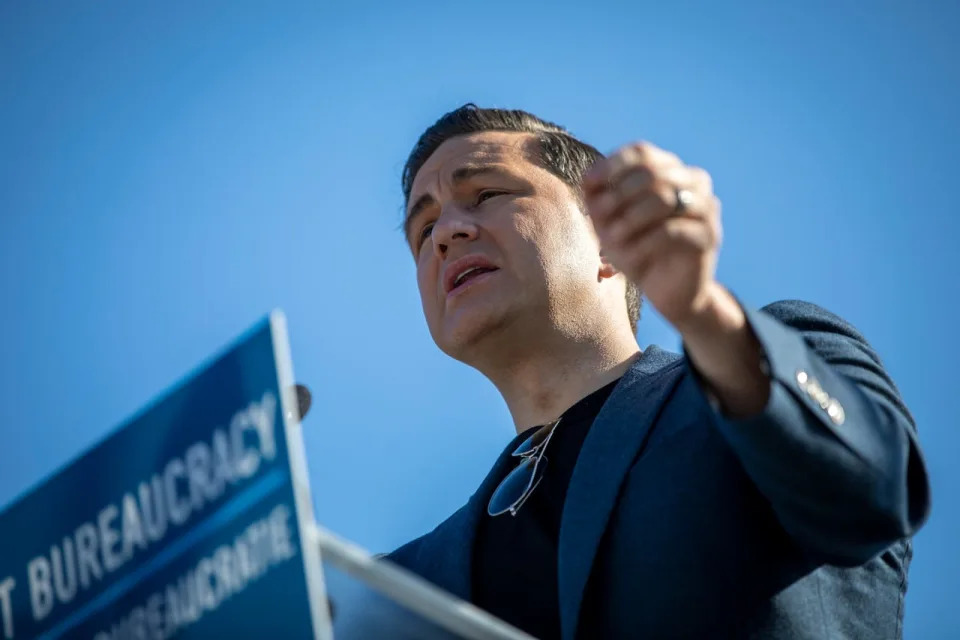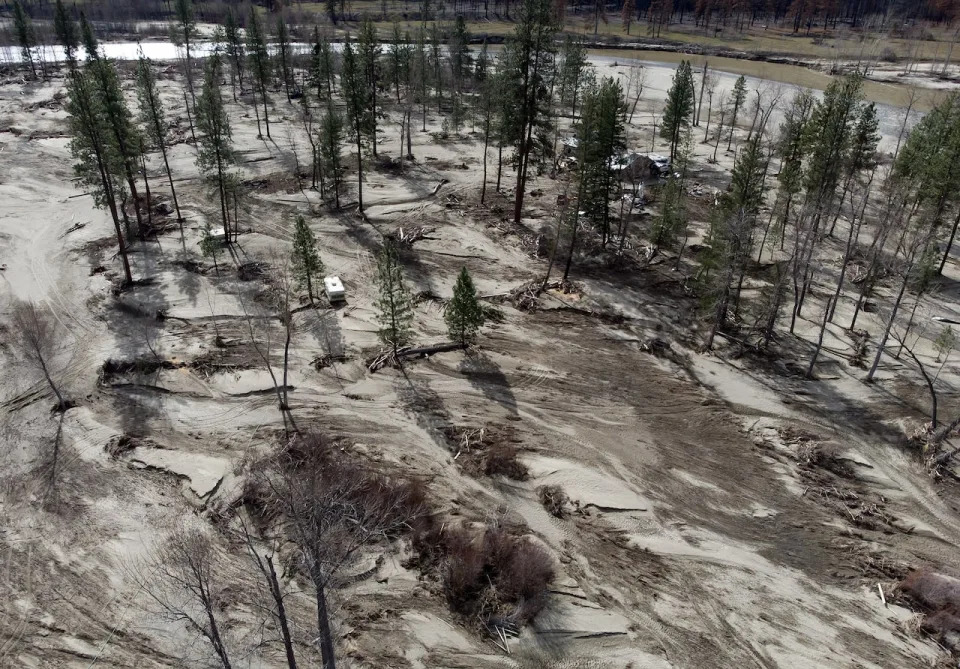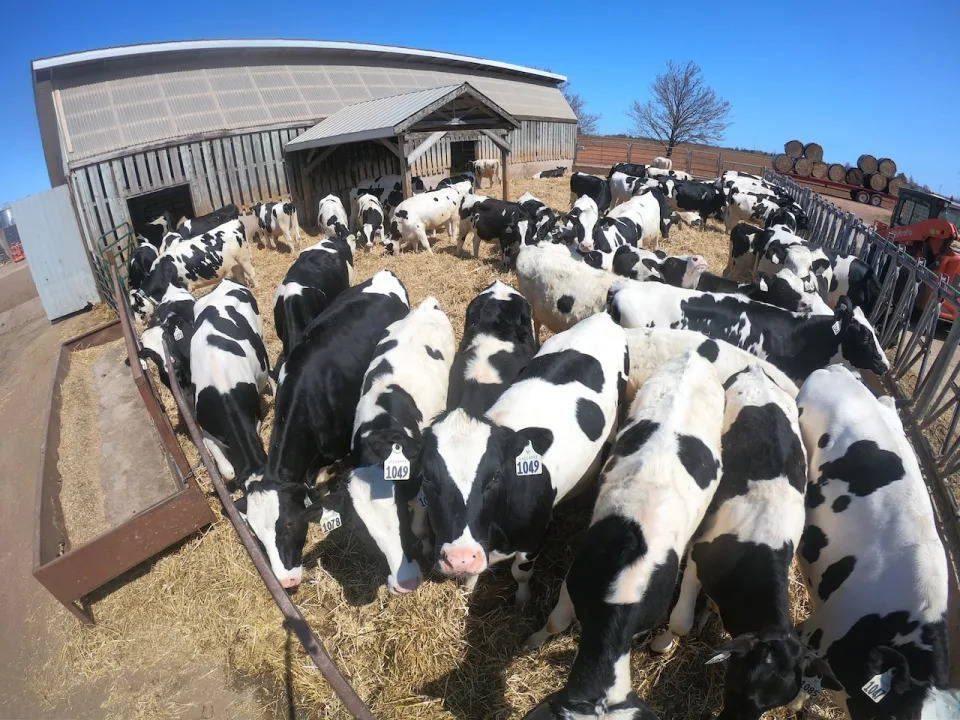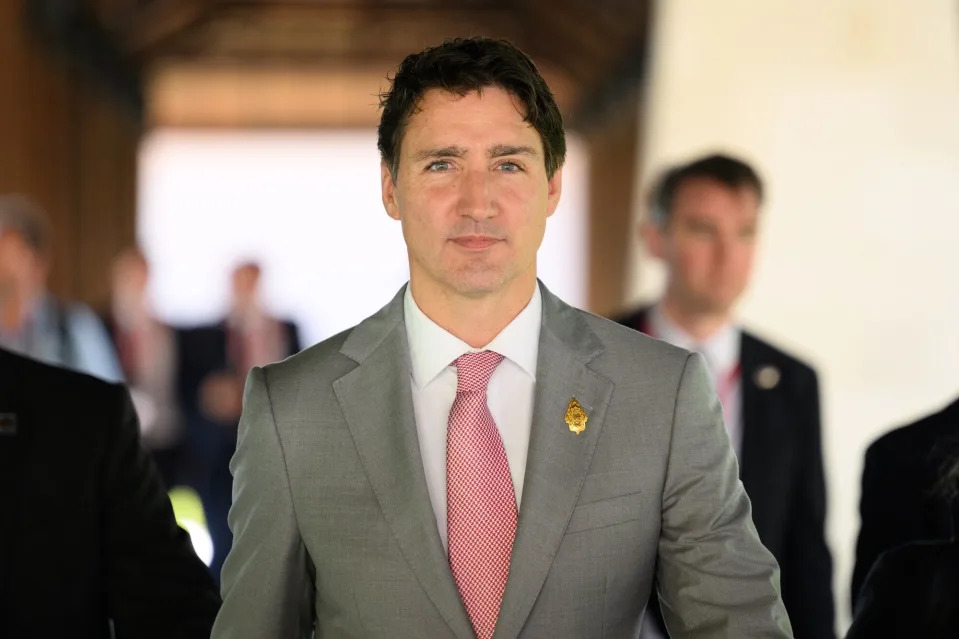Premier Scott Moe says Saskatchewan is to stop collecting the carbon tax on natural gas if Ottawa doesn't offer a break, a move that has received unanimous support in the provincial legislature.
Moe said Monday that starting Jan. 1, the provincial gas utility SaskEnergy won't collect or submit the tax to the federal government unless Ottawa provides the province an exemption.
"The federal government may say that's illegal," Moe said in a video on the X platform, formerly known as Twitter.
"In most cases I would agree with that, but it's the federal government that has created two classes of taxpayers by providing an exemption for heating oil, an exemption that really only applies in one part of the country and effectively excludes Saskatchewan."
Prime Minister Justin Trudeau announced last week the carbon tax would be exempt for three years on home heating oil to address affordability needs.
The move largely helps those in Atlantic provinces, where it's a main source for home heating.
Moe and Alberta Premier Danielle Smith have asked Trudeau to extend that exemption to cover all other forms of heating, including natural gas.
"As premier, it's my job to ensure Saskatchewan residents are treated fairly and equally with our fellow Canadians in other parts of the country," Moe said.
Trudeau has denied the decision was about saving Liberal seats, but he did acknowledge it was something voters wanted.
The federal government did not immediately respond to a request for comment.
Saskatchewan's Opposition NDP said it supports Moe's move.
On Monday, NDP member Jared Clarke introduced a motion expressing concern over the exemption not applying to Saskatchewan.
The motion also expressed displeasure with comments from Gudie Hutchings, the federal rural economic development minister, who told CTV last week that people in Western and Prairie provinces should elect more Liberals if they want to have conversations around potential exemptions.
A Saskatchewan Party member amended the motion to say the assembly supports not collecting or remitting carbon tax from natural gas if the "Liberal-NDP coalition" doesn't offer an exemption.
The motion passed unanimously, 52-0.
The legislative assembly is to send the contents of the motion, as well as a transcript of the debate, to Trudeau, NDP Leader Jagmeet Singh and Conservative Leader Pierre Poilievre.
"I think there was enough agreement from both sides of the house that, at the heart of this, this shouldn't be about political games. This should be about fairness and getting relief for the people of this province," NDP Leader Carla Beck told reporters.
Beck said she spoke with Singh's chief of staff on Monday, relaying her concerns about Saskatchewan not being exempt.
Dustin Duncan, the minister responsible for SaskEnergy, did not say how the utility would not remit carbon taxes, saying the province is still looking at its options.
He said he hasn't spoken with his federal counterparts, adding he hopes Ottawa does not hit Saskatchewan with a legal challenge.
"We have the ability to not follow the law and it'd be up to the federal government to decide (what to do)," he said.
Natural gas prices have recently been lower than heating oil prices.
Alberta and Saskatchewan have long called on the federal government to scrap the carbon tax.
Beck said Moe could offer additional affordability, like scrapping various fee hikes and lowering utility bills.
"It's pointing fingers while failing to do the things they could do today," she said.
Saskatchewan took Ottawa to court over the carbon tax in 2021, but lost its challenge when the Supreme Court deemed it was constitutional.
Along with the heating oil exemption, Trudeau announced Ottawa would increase the rebate top-up to rural Canadians.
This report by The Canadian Press was first published Oct. 30, 2023.
Saskatchewan and Alberta premiers ask for
extension of carbon tax exemption
Jeremy Simes, The Canadian Press
Two of Canada's Prairie premiers say Ottawa's decision to exempt the carbon tax on heating oil fails to address affordability needs in Alberta and Saskatchewan.
Prime Minister Justin Trudeau announced Thursday the carbon tax would be exempt for three years on home heating oil, a move that largely helps those in Atlantic provinces where it's a main source for home heating.
Saskatchewan Premier Scott Moe and Alberta Premier Danielle Smith say the exemption should also be applied to natural gas, as the majority of people in their provinces use it to heat their homes.
Smith says she's disturbed by the measure, adding it further creates a divide in the country.
"Question for the Liberal Government: Are we not Canadians, too?" Smith posted late Thursday on the X platform, formerly known as Twitter.
She wrote Friday that the federal government "has decided that one part of Canada with one type of home heating is worthy of a carbon tax break, while those living elsewhere using another type of home heating do not."
Moe said the exemption shows the carbon tax is making life less affordable.
"Just axe the tax on everyone and everything," Moe said Thursday on X.
Alberta Opposition NDP Leader Rachel Notley said in a statement it's unacceptable for Ottawa to not apply the carbon tax equitably.
“I am passionately committed to fighting climate change, reducing carbon emissions and seizing the economic opportunities that this brings," she said.
“Yesterday, the prime minister moved Canada much further away from those goals."
She said she's to introduce a motion in the legislature that calls on "federal actions" to be applied equally, regardless of where people live or how they heat their homes.
Trudeau said people in other provinces are to also benefit from the exemption.
The four Atlantic provinces started paying the federal carbon price in July, after provincial systems were deemed no longer strong enough to comply with federal standards.
The federal government also introduced a new clean fuel standard to offset emissions from gasoline and diesel. Both measures caused prices to spike.
Regional members of Parliament have been lobbying Trudeau for months for relief, as costs mounted in their ridings and voters grew increasingly angry about it.
Trudeau denied the decision was about saving Liberal seats, but he did acknowledge it was something voters wanted.
Natural gas prices have recently been lower than heating oil prices.
Alberta and Saskatchewan have long called on the government to scrap the carbon tax.
Saskatchewan took Ottawa to court over the carbon tax in 2021 but lost its challenge when the Supreme Court deemed it was constitutional.
This report by The Canadian Press was first published Oct. 27, 2023.



